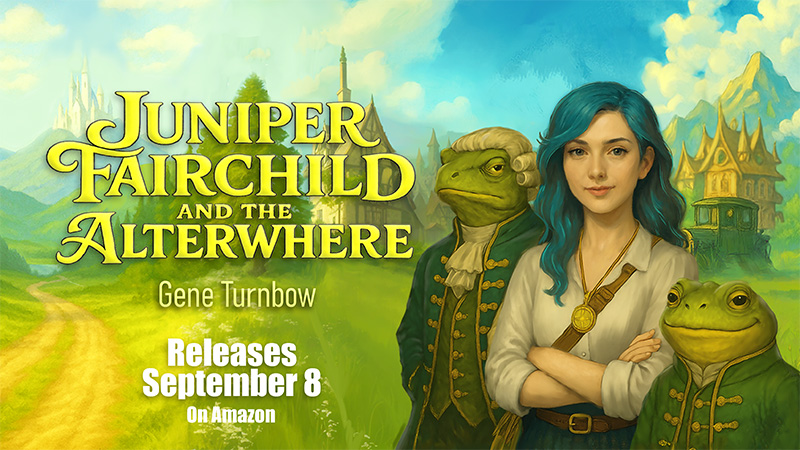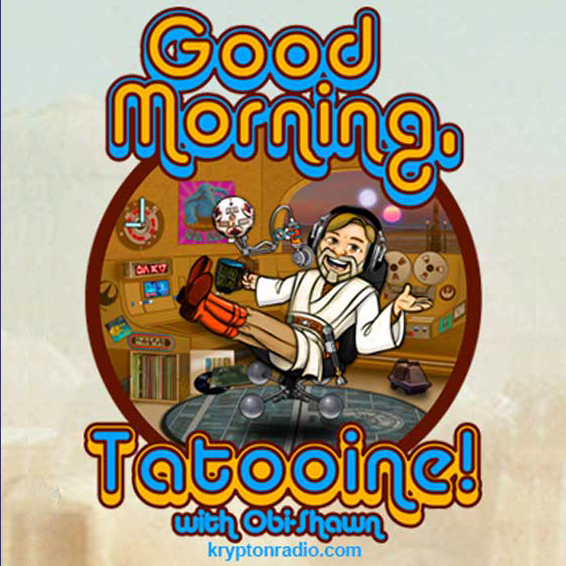
by Gene Turnbow | Oct 11, 2025 | Books, Business, Writing
This is just sort of a grab bag of stuff I learned while publishing my first book, Juniper Fairchild and the Alterwhere. This advice applies to both indie authors and operators of small press.
Know Your Genre. Read.
Read everything. It’s great if you know the classics, but read the new stuff. Learn how to build your stories so that they fit in the formats your anticipated audience will expect to see.
Do not write a 600 page doorstop as your first book. You can do that later if you get popular. Likewise, do not write a pamphlet and present it as a book and expect to be taken seriously.
Organize Everything
People who say they write by the seat of their pants aren’t telling you the whole truth: sooner or later you have to make an outline, and you have to fit what you’ve written into that outline, or you haven’t got a book. It’s better to plan things out, then write. Authors who can write straight ahead are those who are so skilled that they can do the planning part in their heads without writing it down. You are not one of those writers.
ISBN Numbers
You should buy a batch of ISBN numbers from Bowker. Don’t buy them one at a time. Each version of your book will need a separate one, and by the time you’ve used three, you might as well have bought the ten pack.
Do not buy ISBN numbers from anyone else. They’re lying to you when they say they can sell you one. ISBN numbes are not transferrable, and Bowker is the only source.
Do NOT pay the extra $25 for a barcode from Bowker. Bar codes are automatically generated by both KDP and Ingram Spark and applied to your book cover for you, so you never have to fuss with it, and you get those bar codes for free.
If the only place you will ever publish your book is Amazon, then you do not need an ISBN number at all, they can supply you with one (but because they actually own that ISBN number and not you, you cannot use the ISBN number you get from them anywhere but on Amazon).
If you’re Canadian, don’t buy your ISBN number from anybody. Get an account with Library & Archives Canada, which will issue you a batch of ISBN numbers for free. Follow this link to find out what you need to know.
Copyrights
File for a copyright for your work. It only costs $45, and you can’t necessarily rely on your publisher to do it for you, even if they’re contractually obligated to do it, because publishers are human at best, and people forget things. If you’re publishing your own work, there’s no excuse not to. If you run your own publishing company, encourage your authors to do it themselves and show them how. Authors owning their own copyright is a powerful thing.
Library of Congress Numbers (LCCN) – Getting into Libraries
To get your book into libraries, you’ll likely want to take the extra step of getting your book registered with the Library of Congress, and that means sending them two physical copies of your book. In return, you get an LCCN, a Library of Congress Control Number. That number, when used by other libraries, provides access to other important information about your book.
Do you have to have an LCCN to publish? No.
Can you get into bookstores without one? Yes.
However, all the best books, and every book published by the Big Five, have LCCN’s. If you want to be taken seriously, an LCCN is advised, and people expect to see it on your copyright page. Your opinion on this may differ from mine, but I think it skipping this would be like going to a dinner party in a tuxedo jacket and bermuda shorts, or in a cocktail dress and beach sandals.
Getting Into Bookstores
It’s easier than you think. You just have to go through all the steps.
If you want to get your book into libraries and bookstores, you will have to publish either through Barnes & Noble Press, or Ingram Spark. There is no point in doing both. Either of them will ask you for an ISBN number and will not provide one to you.
Once you are listed on either of these services, though, any bookstore in the world and any library in the world will be able to order your book. If your book is listed on Ingram Spark, it will automatically also be listed on Barnes & Noble. I walked into a local Barnes & Noble, introduced myself, showed them my book, and they ordered from Barnes & Noble on the spot.
Don’t Do Your Interior Design in Word. Just… don’t.
Don’t submit the interior design of your book as a Word document. I know they all accept that format, but don’t do it. For a good interior design, you will want pixel accurate control. You’re not getting that from a Word document. Use Atticus, or Adobe InDesign to output a PDF file.
Ingram Spark versus Amazon KDP
Both Ingram Spark and Amazon allow you to update both your cover and your content, but only Amazon lets you do that for free after publication. Ingram Spark lets you do it but only up to 60 days after initial submission. After that, they’ll charge you $25 each time you do it. Get it right the first time if you can.
Do not assume that you can upload changes to either service and have those changes propagate to books already in the printing pipeline. They can’t just yank content and replace it on the fly. Printing pipelines are enormous machines, and once you load up the books’ content and press “go”, that’s it. It goes into the machine and comes out as a book. The machine cannot be interrupted or opened while it’s running. Any changes you make will apply to the next batch, not any currently running batches.
I have watched videos where self-published authors have gotten their knickers all atwist because they tried to make last minute changes after orders were already in the pipeline and they did not understand that it wasn’t that Ingram Spark WOULD not help them, it’s that they COULD not help them.
Be aware that KDP uses a different coating on their matte cover stock for the covers than Ingram Spark does. Ingram Spark’s cover coating results in deeper, richer colors. The difference is noticeable, but only when you’re holding examples side by side in your hands. You’ll never notice the difference otherwise.
Wrapup
I hope this list of tips and tricks is useful. I learned it all by trial and error and doing my own research. I was surprised to find that nobody had ever assembled these tips together on a single page before, so may this list short circuit your journey and make your life as a published author somewhat less of a struggle.
–Gene

by Gene Turnbow | Aug 5, 2025 | Business, Writing
I am not, and have not been, in my thirties for a very long time. That said, I probably don’t have the time to wait around to pummel hundreds of agents with my manuscript until I am “discovered” by one of them. I have therefore decided to take matters into my own hands.
Helium Beach is an imprint I have been operating through Krypton Media Group for about five years now, as of this writing, and I was using Patreon money to buy short stories for publication. Needless to say, this sucks as a business model, so after a couple of years I stopped buying articles. Now, though, Helium Beach comes back into play. I am releasing my first novel, Juniper Fairchild and the Alterwhere, through this imprint, and I have established it with various publishing agencies and companies. The eBook and the paperback release on September 8, 2025.
And now I am swimming through the sudden realization that what I know about social media you could drown in a teacup. The learning curve has been soul shredding, terrifying. Yet, failure is absolutely not an option here, so despite the emotional trauma at having to get my feet back under me at 68 and start a whole new career, here we f**king go.
I’ve learned how to do internal design, cover design, how to work with an editor, the importance of using one, doing endless rewrites, doing my own cover design, and everything else while I keep my radio station running—the radio station, by the way, without which I would have had zero shot at any of this and would have been truly starting from scratch. The station, SCIFI.radio, has a social media reach of about 140,000 pairs of eyeballs due to its presence on five or six social media, and without that springboard I honestly have no idea how well I would be doing as an author. Probably not well.
It’s been exhausting, having to learn all this on top of having to write the book in the first place. I can see why a lot of indie authors never sell more than a dozen copies of their book. I think this just might be the most challenging thing I’ve ever done, not because the work is that hard, but because it’s so alien to how I think. I was raised to believe that if I did good work, people would notice, and I would rise. And that’s not actually how things work at all.
Quantity over Quality
You might find it appalling, but success has more to do with how you twiddle the knobs than the quality of your work. I mean, sure, the quality has to be there at the end, or your sales success will be singular and short-lived, but to begin with, before anybody’s seen your actual work, you can get quite a long way before you actually have to deliver the product.
TikTok and Instagram, for example, are currently considered the platforms for marketing and selling books. Nothing else really moves the needle. Facebook, which I had been relying upon for years, absolutely doesn’t. Yet, both platforms favor videos of a length between seven and fifteen seconds. You’re not doing much selling in seven seconds. You have to fall back on repetition, posting a couple times a day, sometimes for months, before you start to see a benefit. I can tell you, it’s exhausting.
I was just reading about one young lady (whom I will not name, in case she wants to try again and do better next time) who had somehow managed to get 4,900 pre-orders on her book, and then the book released, and all the people who bought it felt cheated because little attention had been paid to preparing the book for publication. It was poorly written, poorly edited (which could have fixed the “poorly written” part,) and contained numerous spelling errors. She got probably a $30,000 payday out of it as a first time author, and yet somehow had managed to run the prerelease guantlet without getting a proper editor in the mix; the point being that it is possible to learn the intracacies of the sales engine without having an actual salesworthy product.
The Actual Path
By this time you can figure out for yourself why indie writers usually fail. It’s not enough to write a great novel. If you’re an indie author, you have to not only write your book, but you’re responsible for all the things your agent would normally do for you, and all the things your publisher would normally do for you. You have no idea what you’re facing until you do it for the first time, nor do you have a clear idea of just how deep this rabbithole goes. The successful self-published author has mastered every single one of these tasks.
And here’s the kicker to all of it. The decision to self-publish might have been the right answer, even if I want to be traditionally published later. An astonishing number of agents now only accept authors with proven sales records and established social media spheres, because they can’t risk gambling on somebody who doesn’t have either one. The publishers are getting this way too. It used to be that the proving ground for new writers was selling short stories to the trade magazines, but they’re all gone now, and that hasn’t been true for probably half a century now. Writing shorts is still a way to polish up your writing skills, but if I’m honest here, writing short stories and writing novels are two completely separate skill sets. Success in one does not require or suggest success in the other.
Anyway, long story short, if you’re an indie author trying to climb to the top, don’t give up. You’re doing it right. There is no slush pile anymore. Indie publishing is the slush pile. Persistence will win the day.

by Gene Turnbow | May 14, 2025 | Books, Business, Writing
I’ve finished the third draft, and still frankly doing little tweaks here and there. I’ve learned that most agents, if not all of them, request the first three chapters of the book to read when you submit a query, so I’ve been polishing. A word here, a phrase there, suddenly it all seems to have outsized importance. And then, of course, it makes me want to go through the entire book and do that to every chapter.
When I’m alone with my thoughts, when I’m writing the story, that’s the sweetest, most engaging part of the entire process, but now I’m faced with having to do the one thing I’ve never ever been good at, the one thing that terrifies me more than anything else I’ve ever done in my entire life that didn’t involve doing something like playing electric guitar and singing on stage, solo, in front of an auditorium filled with my high school peers and their parents (this was when I was 17), encountering a band of thieves in my own home, led by someone I thought was my best friend (this happened when I was nineteen), or diving in the driver’s side window of my mother’s borrowed car to grab the emergency brake as it was about to dive off a cliff off the end of a pier into the Pacific Ocean (this happened when I was twenty), or having to pull over to blow out an engine fire on my way to work and then get back in the car and drive the rest of the way to work (this happened when I was 40).
I have to sell an agent on the idea of representing my book to a publisher.
I’m terrible at salesmanship. Throughout my life, any time I’ve been confronted with having to do it, it’s always been a horrible experience and I’ve failed at it miserably. But this time I can’t afford to fail, because the rest of my career as a writer depends on my being able to pull just one more miracle out of that dark secret place in the back of my trousers where flying monkeys come from.
I’m doing all the things I think I’m supposed to. I’ve gotten myself an annual membership on QueryTracker, which is a web site meant to help you find agents and keep track of whom you’ve submitted to and what they said, or didn’t say, afterwards. I’m considering entering BookPipeline’s unpublished author’s contest. To be honest, though, I have no idea if that’s a good idea, or if it would help me in the slightest. They don’t even start judging until September, and that seems a very long time from now, and I’m impatient to get started pitching agents.
I’m told that I need to start working on my next book while I work on selling this one, because the publishing industry runs at the speed of books, which is to say, not very speedy at all. Even if I get an agent right away, which isn’t terribly likely, I might see my seventieth birthday before the book is published, assuming it ever gets there. This prospect does not fill me with confidence. I’m sixty-eight now. I don’t want my life to go by while I wait to see if I get to be a real writer. Frankly, the odds aren’t good.
I will tell you something, though. The reason most people fail at getting an agent is that their work isn’t finished before they submit their queries, or they query the wrong agents because they haven’t done any research, or they can’t follow simple instructions given them by the agents. Frequently they just have no idea how writing a novel works, and have written something unreadable, and their books are nowhere near where they need to be to submit. Your book doesn’t have to be in its final, polished, perfect form, but it needs to be as good as you can make it, and it should have been through the hands of a professional editor before you submit (mine now has). The odds of my getting an agent are probably far, far better than I believe they are, because most of the field is just self-disqualifiying.
Now that my manuscript is finished, the real adventure begins.
Wish me luck.

by Gene Turnbow | Nov 13, 2017 | Art, Business, General

Obi-Shawn’s t-shirt design for his morning show on Krypton Radio, “Good Morning, Tatooine!”
This was written in 2017. We changed the name of the station to SCIFI.radio on January 25, 2021.
We use Patreon to keep our sci-fi radio station, Krypton Radio, fueled up and on the air, and it’s been working for years. However, it’s also a struggle, and we’re not doing anywhere near as well as we should be given the size of the market. Getting the word out is an enormous problem when what you do is a service, not putting 100% of your energy into a single one-shot incendiary mortar shell of a geeky project.
Here’s what I’ve learned so far.
Patreon is Hard
The main issue with Patreon is that you have to live there to make it work. You can’t run your stuff out of your web site and visit only occasionally, you pretty much have to move into Patreon and run your entire operation from there.
For most creators, that’s a real problem, because they’ve spent years developing a following on the web and in social media, and it’s very hard to get your fans to follow you over to Patreon, and it’s hard to keep their attention once you do. Patreon is not social media, and it lacks all the things that make people hang around for extended periods. Once your patron is done reading your page, there’s nothing else to keep them there.
Very very recently Patreon has released a plugin for WordPress that makes it possible to post Patrons-only content on your own web site, so that lets you bring the Patreon to the fans instead of having to do it the other way around, and we’re about to start experimenting with members-only content that way. We have no idea how much or how little that will help yet, it’s totally uncharted territory for us.
One important factor with Patreon is that you have to be very very active in it or people will think you’re out of business. A post a week isn’t bad. Two a week is probably optimal.
Another important factor is that you’re going to have to plan your productivity to include creating assets specifically for Patreon that aren’t directly part of whatever creative thing it is that you do. You’ll need videos, graphics, short articles, sound bytes, all sorts of things specifically shaped to the needs of running a continuous crowdfunding campaign. It’s like running a Kickstarter, but you never get a break and it never stops.
But Does It Work?
Well – I can honestly say that we wouldn’t have a radio station if it didn’t work.
Advertising certainly doesn’t work. Nobody clicks on anything, and web browsers are built to filter them out by default. Kickstarters are a pain, and very stressful and make you crazy. Subscriberships are the only way to go if you want to be paid every month for what you do.
What About the Perks?
That’s one of the things we’re struggling with.
We produce audio, so there’s no finite physical product that we can send people. We have to come up with content specifically geared to being output in little parcels that our fans would want, so we’re exploring publishing fiction exclusively for our subscribers.
We’re also developing a sci-fi radio drama, and when that comes out we’ll have props and costumes, and challenge coins, and patches, but it’s a massive push to get it done, and it’s taking years longer than we planned to do this.
We also feature a line of sci-fi / geek t-shirts that we’ve designed ourselves that nobody else carries, and you’d think that would be an attractant, but to be completely honest, apparently nobody gives a @#$#@ about t-shirts. Like, at all. We’ve given away maybe two of them as perks in the last two years when people ask for them, despite the fact that half our patrons are eligible for them.
White Elephant? Why, Yes. Yes We Are.
Part of our problem stems from what we are. We’re a full time sci-fi fandom format radio station, and that makes us unique on the planet (one or two other stations lay claim to this, but they also do things like fill up 60% of their air time with metal or hiphop). We don’t fit categories. In anything.
Most radio station listing services don’t even have a listing category for us, so we get stuck in “Other”, or “Eclectic”. Nobody searches for “other” when they’re looking for a radio station, and people don’t think to search for sci-fi radio because all they get is podcasts when they try it – so we’re hard to categorize, hard to find, and searched for much less than we’d like because people don’t even realize that full time sci-fi radio (as contrasted to a podcast) is a thing.
Our response for that is to hit as many distribution platforms as we can. We get another dozen patrons, and we will be able to get listed on iHeartRadio. Suddenly we’ll be exposed to 70 million iHeartRadio subscribers, and available in people’s cars, which is where most people listen to the radio in the first place. We’re hoping our fortunes will improve after that.
What’s Next?
Our biggest problem is that since nobody knows we’re here, relatively speaking, we have to maximize our exposure. We have to position ourselves so that the maximum number of people have a chance to find us by serendipitous search. I can’t tip my hand just yet, but there’s another distribution network we’re looking at in addition to iHeartRadio, and between the two of them we’ll have exposure to a new potential audience of 190 million people that we didn’t have access to before. We’ve never made a jump this big before, and surprisingly, the two services we’re going after will make us big fish in a small pond despite the huge subscriber numbers for each service.
The reason is, once again, that Krypton Radio is unique. Literally nobody else in the world does what we do the way we do it. It’s not like regular radio stations. How many hip-hop stations are there across the country? About 250. Rock? About 360. Oldies? Oh my god, 500 plus of those. Metal? You get the idea.
But full time sci-fi geek culture genre format stations? There’s one. When people look for that, they find us, and that’s it. I’m hoping to improve our odds by expanding our “broadcast range” so to speak.
Nine tenths of success is not giving up. We’re already heard in 135 countries and we reach between 65,000 and 100,000 listeners a month depending on the season.
Fast Forward to 2021
And now our Patreon campaign is moved to the new URL, https://patreon.com/scifiradio. And I’ve learned a few things.
Don’t Be Stingy
Expect to send out about 30% of what you get as perks. People pay money to get stuff, as much as to help you. Show your true appreciation, even if it hurts a little. You’ll be much better off. Of course, you do have to make your goals, so you’re walking a fine line when you’re just starting up. It helped a lot that Patreon started doing fulfillments as a service, so that we can spend our time actually doing the thing instead of churning around trying to do fulfillments, which we were very bad at.
Name Yourself Something that Makes Sense
When we changed our name from Krypton Radio to SCIFI.radio on January 25, 2021, suddenly our findability and listener traffic jumped 30% – and it stayed there. It was a permanent boost, and the boost we needed. Now we’re reaching 300,000 listener connections a month, over about 110,000 uniques. This, in turn, has translated to a big boost in Patreon receipts, a bigger jump since the January name change than we’ve ever seen in the history of the station.






Recent Comments